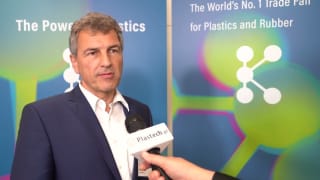 BASF significantly surpassed the record levels of 2010 in sales and earnings, and thus again earned a high premium on its cost of capital in 2011.
BASF significantly surpassed the record levels of 2010 in sales and earnings, and thus again earned a high premium on its cost of capital in 2011.
Compared with 2010, sales increased by 15% to €73.5 billion. All regions contributed to this increase. Income from operations (EBIT) before special items improved by 4% to €8.4 billion and EBIT increased almost 11% to €8.6 billion.
At the Annual Press Conference, Dr. Kurt Bock, Chairman of the Board of Executive Directors of BASF said: “2011 was another very successful year for BASF. Thus we are continuing our ambitious dividend policy and will, therefore, again propose a higher dividend of €2.50 at the Annual Meeting. This is an increase of €0.30 or 13.6% compared with the previous year.”
At around €18.1 billion, sales in the fourth quarter of 2011 were higher than in the fourth quarter of 2010, as well as in the third quarter of 2011. However, the slowing of the economy over the course of the year was reflected in the EBIT before special items, which at €1.5 billion was 14% below the fourth quarter of 2010. The trend that the company observed at the beginning of the second half of the year continued. Customers were more cautious in their ordering, reduced their inventories and put off orders in expectation that the economy would decline and prices could possibly soften.
Chief Financial Officer Dr. Hans-Ulrich Engel highlighted the strong cash flow from operating activities. “At €7.1 billion, our operating cash flow exceeded the high level of the previous year once again,” he said. Higher net income contributed significantly to this. The expansion of business and higher prices led to an increase of the funds tied up in net working capital.
Payments related to property, plant and equipment and intangible assets (capex) of €3.4 billion were €862 million above the previous year’s level. Important capital expenditures that started operations in 2011 include the expansion of the company’s site in Nanjing, China; the construction of a methylamines plant in Geismar, Louisiana; the construction of an oleum plant in Antwerp, Belgium; as well as the extension of its European natural gas pipeline system.
Bock said: “We expect the global economy to pick up speed over the course of 2012 following a moderate start. Uncertainties due to the sovereign debt crises, in particular in Europe and the United States, will dampen growth prospects. Positive impetus for the chemical industry will again mainly come from the emerging markets.”
Excluding the effects of acquisitions and divestitures, BASF wants to increase sales volumes. The company aims to exceed the 2011 record levels in sales and EBIT before special items. Earnings will be supported by the resumption of crude oil production in Libya, as well as growing volumes in the chemicals business.
BASF plans to increase its global research and development expenditures to €1.7 billion in 2012 (2011: €1.6 billion).
“We aim to earn a high premium on our cost of capital once again in 2012. In the first half of 2012, we will likely not achieve the high levels of the first two quarters of the previous year. For the second half, we expect to surpass the levels of the same period of the previous year,” said Bock.
In Chemicals, price increases in all divisions led to higher sales in the fourth quarter of 2011. In addition, the transfer of the styrenics business to the Styrolution joint venture contributed positively because ethylene sales to the joint venture have been reported as third-party sales since October 1, 2011. Due to weaker demand and ongoing high raw material prices, EBIT before special items was lower than in the fourth quarter of 2010. For the full year 2011, sales in Chemicals rose by 14% to around €13 billion and EBIT before special items grew 6% to reach a new high of €2.4 billion.
Despite lower volumes in major product lines, sales in Plastics increased in the fourth quarter of 2011 due to higher prices primarily in the Performance Polymers division. In engineering plastics, higher demand in North America, mainly from the automotive industry, compensated for lower volumes in Europe and Asia. EBIT before special items declined considerably due to lower margins as a result of weak demand and increased raw material costs, especially for TDI. For the full year 2011, sales in Plastics rose by 12% to around €11 billion while EBIT before special items of €1.2 billion was below the high level of the previous year.



